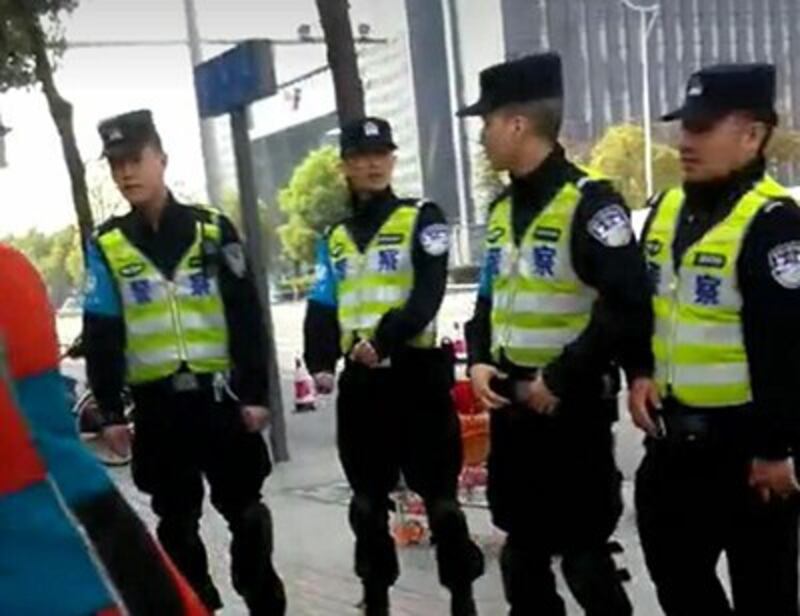A court in the southwestern Chinese province of Sichuan on Friday handed down a four-year jail term to a veteran rights activist detained after visiting the grave of a 1989 Tiananmen massacre victim in 2015, finding him guilty of a public order offense.
The Wuhou District People's Court in Sichuan's capital Chengdu jailed Chen Yunfei after convicting him of "picking quarrels and stirring up trouble," a charge that is increasingly used to target peaceful dissent and criticism of the ruling Chinese Communist Party.
Chen, who appeared at the one-day hearing in his pajamas in a satirical reference to President Xi Jinping's slogan "the Chinese dream," rejected the verdict and sentence, his lawyer told RFA.
"Chen Yunfei smiled and made a victory sign ... [he] wore pajamas in court today," defense attorney Sui Muqing said. "He said it was easier that way to dream the Chinese dream."
"He said the police, prosecution and court had persecuted him and shown contempt for ideas."
Sui said Chen, who was initially detained on subversion charges on March 25, 2015 near after visiting the grave of Tiananmen massacre victim Wu Guofeng near Chengdu, is innocent.
"All he did was to exercise his rights as a citizen under the constitution," Sui said. "The core problem with his case is that it is an attack on freedom of expression; it's a form of political persecution."
"He was actually pursuing a glorious ideal; the dream of the citizen to exercise their rights ... He is innocent."
Sui said in an earlier interview that Chen had been hoping to get a longer sentence, of five or even 10 years.
"His aim is to become China's last political prisoner," he said. "He would rather keep on serving other people's jail time for them."

Tight security
Security was tight outside the court buildings, where around a dozen of Chen's supporters gathered in the hope of attending the hearing.
But they were detained by police for questioning at the local police station instead, according to Chengdu-based petitioner Wang Rongwen.
"I went there today with my wife and a few friends," Wang said. "The area was partially sealed off, although not as tightly as [for Chen's trial]."
"We were able to get to a point opposite the court buildings, but we couldn't cross over. The road had been sealed off halfway across," he said.
"I stood there a while, and then the state security police came over and dragged me away as far as the intersection."
Fellow Chengdu rights activist Huang Xiaomin said Chen is a bit of a legend in the human rights community.
"He is a key figure, full of ideas and legendary actions," Huang said. "More than 20 years ago, from the time he was a university student during the 1989 pro-democracy movement, he has matured into an independent social critic and satirist who takes aim at all that is wrong with our society to try to get more people to wake up and push for social change and progress."
"I have collaborated with him many times, and I think there isn't anyone to match him in China today."
Target of harassment
Chen’s human rights advocacy and environmental activism have made him a frequent target of police harassment, violent assaults, and arbitrary detention.
In 2007, he was held under six months' residential surveillance after placing an advertisement in the Chengdu Evening News commemorating the relatives of those who died in the Tiananmen massacre, on charges of "incitement to subvert state power."
In 2014, the authorities launched a nationwide crackdown on activists and family members of victims of the 1989 military crackdown on the Tiananmen Square student-led pro-democracy movement in the run-up to the 25th anniversary on June 4.
The government bans public memorials marking the event, and has continued to ignore growing calls in China and from overseas for a reappraisal of the 1989 student protests, which it once styled a "counterrevolutionary rebellion."
The number of people killed when People's Liberation Army tanks and troops entered Beijing on the night of June 3-4, 1989, has never been confirmed.
Reported by Qiao Long for RFA's Mandarin Service, and by Hai Nan for the Cantonese Service. Translated and edited by Luisetta Mudie.
